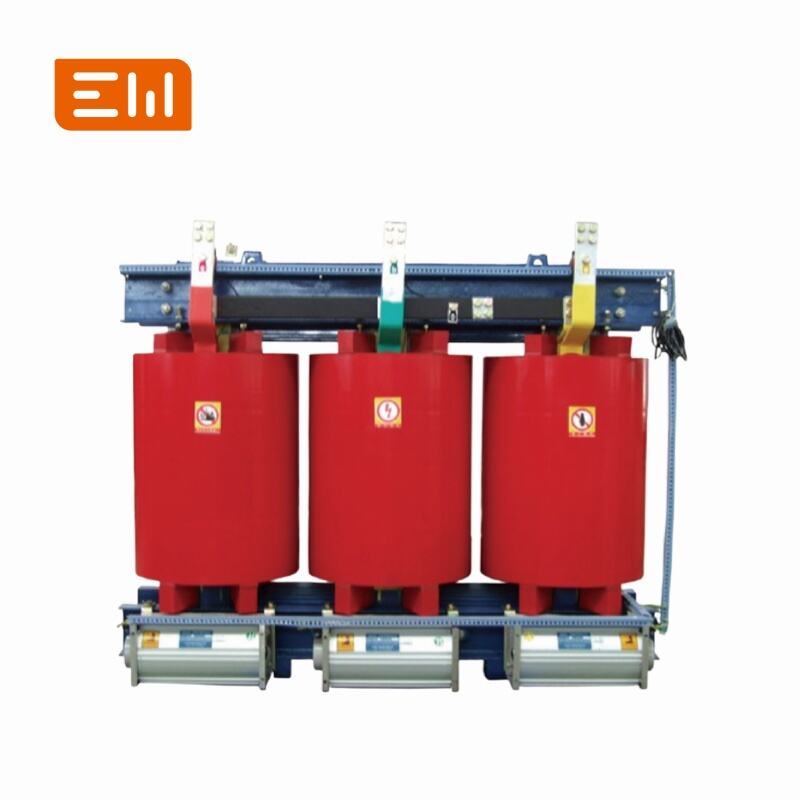VPI vs. Cast Resin: A Comparison of Dry Type Transformer Technologies
When choosing a dry type transformer, the two leading manufacturing technologies you will encounter are Vacuum Pressure Impregnated (VPI) and Cast Resin. While both serve the same fundamental purpose, their design and construction lead to significant differences in performance, durability, and ideal applications. Understanding these differences is key to selecting the most effective and cost-efficient transformer for your needs.
This guide provides a head-to-head comparison. For a deeper look into Cast Resin specifically, please see our guide, Understanding Cast Resin Dry Type Transformers.
The Fundamental Difference in Construction
VPI Transformers: The windings are created and then placed in a vacuum chamber where all moisture is removed. A polyester or epoxy varnish is then introduced, and pressure is applied to ensure the varnish impregnates the windings. The result is a winding coated and saturated in varnish, but not fully encapsulated.

Cast Resin Transformers: The windings are placed into a mold which is then filled with epoxy resin under a vacuum. This process creates a solid, void-free, and completely encapsulated coil. The result is a solid block of resin with the windings protected inside.

Detailed Comparison: VPI vs. Cast Resin
| Feature | VPI Transformer | Cast Resin Transformer |
|---|---|---|
| Moisture & Dust Protection | Good. The varnish provides a decent barrier, but the windings are not fully sealed and can absorb moisture in highly humid conditions. | Excellent. The solid epoxy encapsulation is impervious to moisture, dust, and chemical contaminants. Ideal for harsh environments. |
| Mechanical Strength | Moderate. The windings have some support from the varnish, but less than a solid cast. | Very High. The solid resin mass provides exceptional structural integrity, offering superior resistance to short-circuit forces. |
| Heat Dissipation | Good. The more open design can allow for effective air circulation and heat dissipation. | Good. Heat dissipates through the resin. The design must be carefully engineered to prevent hot spots. |
| Initial Cost | Generally lower. The manufacturing process is less complex and costly. | Generally higher. The process requires precision molds and a more complex vacuum casting procedure. |
| Lifespan & Reliability | Reliable in controlled, clean, and dry environments. | More reliable in a wider range of conditions, including harsh and fluctuating environments, leading to a potentially longer service life. |
| Repairability | Can sometimes be repaired (rewound) in case of failure, though it is often not economical. | Not repairable. If a winding fails, the entire encapsulated coil must be replaced. |
When to Choose VPI
A VPI transformer is a cost-effective and reliable choice for applications in **controlled indoor environments**, such as:
- General commercial buildings with clean air handling.
- Data centers with stable temperature and humidity.
- Light industrial facilities where cost is a primary driver and the environment is not overly harsh.
When to Choose Cast Resin
A https://www.enweielectric.com/products/transformers/dry-type-transformers">Cast Resin transformer is the superior choice for applications where reliability and safety are paramount, especially in challenging conditions. Choose Cast Resin for:
- Harsh Environments: Outdoor enclosures, marine applications, dusty factories, and chemical plants.
- High-Moisture Areas: Tropical climates, underground substations, and coastal regions.
- Critical Safety Applications: Hospitals, airports, high-rise buildings, and any location where fire safety is non-negotiable.
- High Short-Circuit Risk: Systems where the potential for high fault currents exists, as the mechanical strength provides better protection.
Conclusion: Matching Technology to Application
The choice between VPI and Cast Resin is a classic engineering trade-off between cost and performance. While VPI technology offers a reliable and economical solution for standard, clean environments, **Cast Resin technology provides a far more robust, durable, and versatile solution** capable of performing in the most demanding conditions.
For applications requiring the utmost in reliability, safety, and resistance to environmental factors, the superior encapsulation and mechanical strength of a cast resin transformer make it the clear winner and a worthwhile long-term investment.
Unsure which technology is right for you?
- https://www.enweielectric.com/contact-us">Contact the experts at Enwei Electric for a thorough analysis of your project's requirements.
- Explore our line of high-performance https://www.enweielectric.com/products/transformers/dry-type-transformers">SCB Series Cast Resin Transformers.

